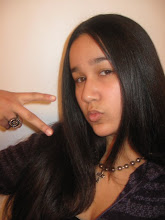Ms. Peifer
10 IB -Hour 5
20 February 2009
Macbeth LRJ #1
In the first act of Macbeth, the two characters that readers become most acquainted with at first are Macbeth and Lady Macbeth. The first impression of Macbeth is that he is a lot like Faustus, in a sense that he is being torn by good and evil desires, which presents the play's theme of conflicting morals. When presented with the idea of killing the king and gaining the crown (as it has been premeditated by the Weird Sisters), he says to himself:
"This supernatural soliciting cannot be ill, cannot be good. If ill,
Why hath it given me earnest of success
Commencing in a truth? I am Thane of Cawdor.
If good, why do I yield to that suggestion
Whose horrid image doth unfix my hair
And make my seated heart knock at my ribs,
Against the use of nature? Present fears
Are less than horrible imaginings.
My thought, whose murder is yet but fantastical,
Shakes so my single state of man
That function is smothered in surmise,
And nothing is but what is not." (Shakespeare, Macbeth 1, iii, 131-143)
In contrast, Lady Macbeth immediately comes off as outwardly poised, yet in actuality she is very cold, calculating, and manipulative to an extent. Being an aristocratic lady, it is required that she is poised and superficially elegant, which she does well when Duncan (the king) thanks her for letting him stay in her household, and she replies, "For those of old, and the late dignities heaped up to them, we rest your hermits" (Shakespeare, Macbeth 1,vi, 18-19). This contrasts her first entrance, after Macbeth has sent word of the prophecy pertaining to him being king. At this message, she immediately calls, "Come you spirits that tend on mortal thoughts, unsex me here and fill me from the crown to the toe-top full of direst cruelty!" (Shakespeare, Macbeth 1, v, 40-43) because she believes that Macbeth is too much of a gentleman to take the actions needed in fulfilling the prophecy. So she makes up Macbeth's mind for him, and tells him:
"When Duncan is asleep--
Whereto the rather shall his day's hard journey
Soundly invite him--his to chamberlains
Will I with wine and wassail so convince
That memory, the warder of the brain,
Shall be a fume, and the receipt of reason
A limbeck only. When in a swinish sleep
Their drenched natures lie as in a death,
What cannot you and I perform upon
Th' unguarded Duncan? What not put upon
His spongy officers, who shall bear the guilt
Of our great quell?" (Shakespeare, Macbeth 1, vii, 62-72)
Lady Macbeth's character is also used in introducing the play's themes of darkness and power thirst.
One scene in the first act of Macbeth that struck me as far as imagery is concerned is the scene in which Lady Macbeth tells Macbeth, "Art thou afeard to be the same in thine own act and valor as thou art in desire?...How tender 'tis to love the babe that milks me; I would while it was smiling in my face, have plucked my nipple from his boneless gums and dashed the brains out, had I so sworn as you have done to this" (Shakespeare, Macbeth, 1, vii, 40-59). In this particular scene, Lady Macbeth is chiding Macbeth for not being "man enough" to take action in accordance with the prophecy, and then goes onto to state that she would kill her own child if she had to and had promised so. This would've been considered quite shocking for an aristocratic lady of her time to be speaking in such a way, especially to her husband. Also, the fact that she would kill her own child (for any reason) adds to already apparent darkness of her character.

No comments:
Post a Comment